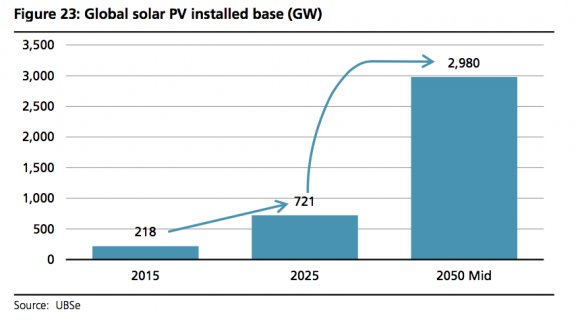Crisis lives on as 250,000 Japanese still reside in temporary housing while struggle to contain hundreds of thousands of tons of radioactive water continues.
Four years since disaster struck the Fukushima Daiichi nuclear power plant on March 11, 2011—with nightmare yet to abate—the call for a future beyond nuclear power also continues.
In the wake of the three reactor core meltdowns, which were triggered when the plant was hit by a tsunami stemming from a 9.0 earthquake, widespread nuclear contamination remains. Tokyo Electric Power Company, or TEPCO, continues to wrestle with how to contain increasing amounts of radioactive water, which was pumped in to cool the melted fuel rods within the reactors.
Roughly 500,000 tons of tainted water needs to be disposed of, threatening unknown environmental impacts in the region, while radioactive water continues to seep, and is dumped, into the Pacific Ocean.
Meanwhile, 250,000 Japanese citizens remain in temporary housing. Despite this, Japan Prime Minister Shinzo Abe continues to insist that nuclear energy is an essential part of the country’s energy future.
Kendra Ulrich, global energy campaigner at Greenpeace Japan, argues that instead of pushing to restart its reactors, the Japanese government should look to its own country as an example of how “we do not need to accept this dirty, dangerous, and outdated technology—neither to keep the lights on nor to meet carbon reduction targets.”
“Those who created the Fukushima Daiichi nuclear catastrophe know that their nuclear power plants have no place in a modern Japan. And they are fighting as hard as they can to stop clean energy progress and shore up their dirty-energy-based profits.” —Kendra Ulrich, Greenpeace Japan”
“As of the fourth Fukushima Daiichi disaster anniversary, the country will be nearly a year and a half without a single reactor online—and not a single blackout or brownout as a result,” Ulrich notes.
On Wednesday, members of the Japanese and European Greens Parties released a joint statement addressing the myriad ways the crisis continues to unfold. They write:
The number of evacuated persons who cannot return to their homes is in the hundreds of thousands, many of who still live in difficult conditions. Whole families were torn apart, yet the subsequent processing of financial compensation and reparation has been severely delayed and is not even sufficient to ensure people a decent living, let alone set up a new life.
Concern about the long-term health risks is also growing. A rise in the incidents of thyroid cancer among children, who lived close to the power plant at the time of the accident, is striking. Since radiation exposure is more prevalent in the young, 370,000 children and adolescents, who used to live in the prefecture, will be regularly screened for thyroid cancer throughout their lives. Sadly, every year the number of ill children is rising.
The statement notes that Japan also faces a contaminated water crisis, which is further exacerbated by TEPCO’s infamous secrecy. Calling for a global ban on nuclear energy, the statement says world governments must instead “actualize a transition to a sustainable energy policy and society.”
Similar messages were echoed in statements across the world, as civilians, environmental groups and others marked the anniversary by warning against a nuclear future.
In Tokyo on Sunday, 23,000 Japanese marked the anniversary by protesting the country’s efforts to restart the beleaguered nuclear power industry. Rallying in front of Japan’s parliament, the demonstrators called decommissioning all nuclear plants across the country and Asia.
“The recovery effort in Fukushima Daiichi is making no progress as they keep contaminating the ocean and fail to bring the situation under control,” Arirang News quoted a protester as saying. “In fact, it’s getting worse in many respects. We want to tell the world that the Fukushima nuclear accident has never ended, and it continues to affect all of us.”
The ongoing plant closures and growing global rejection of nuclear energy have been credited to a strong grassroots push. As anti-nuclear activist Harvey Wasserman noted in a post on Wednesday, the shutdown of all 54 Japanese reactors is the “largest on-going nuke closer in history.” Meanwhile, in the U.S. five reactors have shut down since March 11, 2011 and many European nations, where nuclear plays a large role, are also committing to phase out their reactors.
As Ulrich adds: “Those who created the Fukushima Daiichi nuclear catastrophe know that their nuclear power plants have no place in a modern Japan. And they are fighting as hard as they can to stop clean energy progress and shore up their dirty-energy-based profits.”
Also Wednesday, U.S. nuclear engineer and whistleblower Arnie Gundersen published a searing attack on the nuclear industry.
“Let’s be clear, the disaster at Fukushima Daiichi was manmade,” Gundersen wrote. “Tokyo Electric (TEPCO) and indeed the entire nuclear industry worldwide act as if they are the victims of a natural disaster, but in fact the nuclear industry is the perpetrator of this travesty.”
“At each nuclear catastrophe: Three Mile Island, Chernobyl, and again at Fukushima Daiichi, the companies, governments, and agencies responding to these disasters were not working to protect people, but worked instead to protect the ongoing operation and potential future of nuclear power,” Gundersen continued.
“Of all the ways electricity is produced, nuclear technology is the only one that can destroy the fabric of a country overnight,” he added.
Four Years Since Fukushima, Calls Grow for Nuclear-Free World
whats up: #BustTheMyth
you can't nuke global warming!







